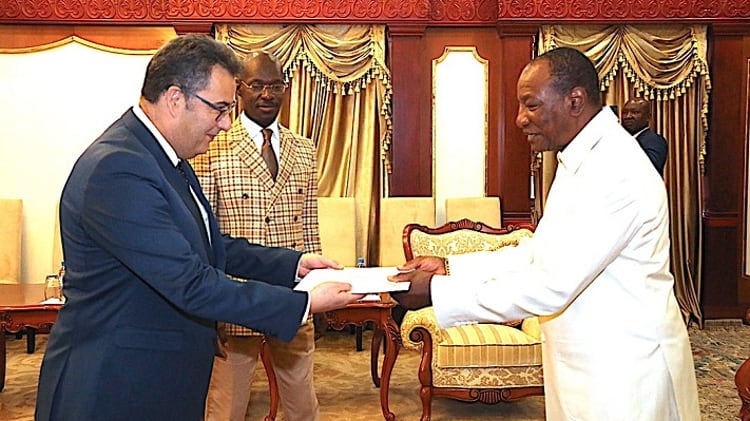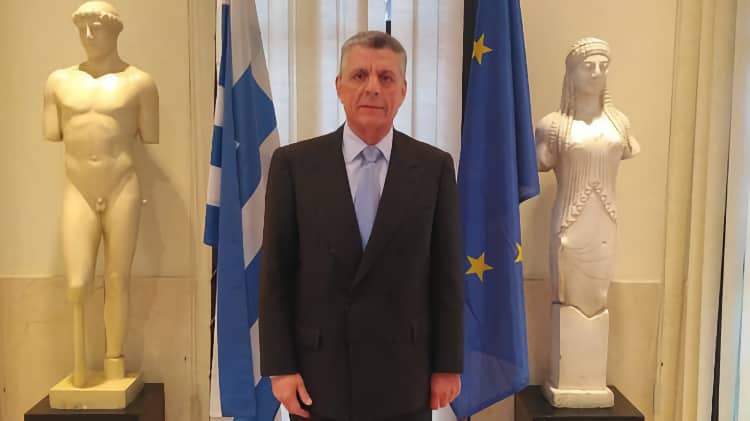The Diplomat
The government of President Abdelmajid Tebboune has decided to close the diplomatic crisis that opened 19 months ago between Algeria and Spain and will send a new ambassador from the Maghreb country to Madrid, in an attempt to normalise relations that were significantly deteriorated after the turnaround of the government of Pedro Sánchez on the Western Sahara issue.
On 19 March 2022, Tebboune recalled his ambassador to Spain, Said Moussi, for consultations in protest at the letter sent five days earlier by Sánchez to the Alaouite monarch, in which he set aside Spain’s traditional position of support for a referendum on self-determination in the Sahara and aligned himself with Morocco’s proposal to grant autonomy to the Saharawis.
Now, the Algerian leader has considered that the time has come to return to diplomatic normality, as El Confidencial reported yesterday, and has apparently chosen Abdelfetah Daghmoum, a veteran diplomat who was already posted in Madrid a few years ago as minister-counsellor, that is, as ‘number two’ in the embassy, to fill the vacancy left by Saudi Moussi – today ambassador in Paris. After being appointed ambassador to Guinea Conakry, Daghmoum was currently posted to the Ministry of Foreign Affairs.
A spokesperson for the Spanish Foreign Ministry consulted by The Diplomat limited himself to a ‘no comment’ when trying to confirm that Algeria was going to send an ambassador to Spain again.
In any case, the information on the decision to close the diplomatic crisis was also picked up yesterday by Algerian media, such as TSA, which confirms that the Algerian authorities have indeed opted to seek a new situation. The newspaper quotes Djamel Eddine Bouah,bdalla president of the Algerian-Spanish Circle of Commerce and Industry (CCIAE), who points out that the normalisation of relations began to be discussed in contacts between Spain and Algeria in September in New York, in the margins of the United Nations General Assembly.
Precisely, it would have been some words pronounced by the Prime Minister, Pedro Sánchez, before the General Assembly, which would have moved Algiers to consider closing the crisis. The Algerians would have appreciated the fact that he spoke of seeking a solution to the Sahara conflict “within the framework of the United Nations Charter and the Security Council resolutions”. And that he advocated a ‘political and mutually acceptable solution’ for both parties, without mentioning the Moroccan proposal for autonomy.
Algiers also seems to have welcomed the fact that, following the outbreak of war between Israel and Hamas, Sánchez has emphasised the need to move towards the creation of a Palestinian state living side by side with Israel. Algeria is one of the strongest supporters of the Palestinians, both the National Authority and Hamas, and does not recognise Israel.
According to El Confidencial, it is unclear whether the appointment of a new ambassador in Madrid will quickly put an end to the Algerian boycott of Spanish products. On 8 June 2022, the Algerian presidency suspended the friendship and cooperation treaty signed with Spain in 2002. It then vetoed, without ever publicly acknowledging it, trade with Spain and excluded Spanish companies from public tenders. It only maintained gas exports through the Medgaz pipeline from Beni-Saf to Almeria.
Spanish companies harmed by the boycott, which have lost billions of euros in exports, have regrouped to found the Association of Companies Affected by the Algerian Crisis. Their intention is to file a claim for financial liability against the state for damages suffered as a result of a political decision by the government. It is mainly Italian exporters that have been filling the gaps left by the Spanish.
Two months before the trade embargo came into force, Algiers adopted another sanction. From 2 April 2022, it suspended repatriations of irregular Algerian immigrants who had landed on the Spanish mainland and in the Balearic Islands. Until then, these repatriations were carried out by boat.







